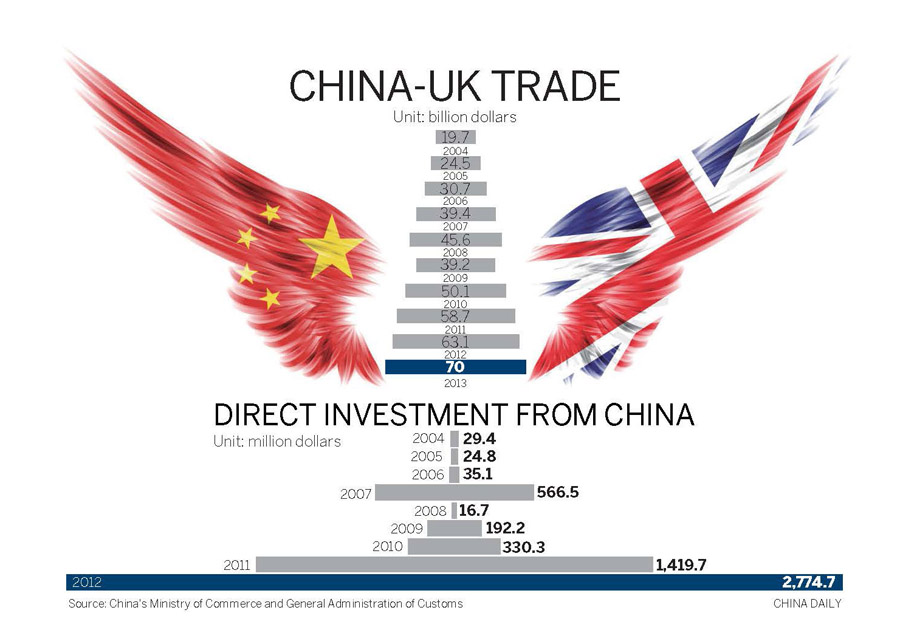
 |
|
Hugh Davis, chairman of the China Association |
When he joined the China Association in 1999, China's trade with the West was dominated by cheap Chinese manufactured products created through low-cost Chinese labor.
"China deliberately positioned itself to be a cheap manufacturing country for many years, but that's changed," Davies said.
He said many manufactured products from China are still exported to the West, but that the nature of the products is changing as Chinese manufacturing moves up the value chain.
At the same time, as China's economy grows and a middle class of consumers increase their purchasing power, many more British products and services are now being exported to China.
"I think from the way the Chinese demographic is changing, the quality of life in China is also changing. It is something the Chinese government is putting a lot of emphasis on," Davies said.
He said one good example is Britain's exports of healthcare and elderly care to China, using established British experience to help Chinese partners build and manage hospitals. It's a trend that has grown in recent years.
In these two sectors, trade has surged in recent years. One catalyst has been the establishment of the UK government body Healthcare UK, which supports the export of British healthcare expertise to emerging economies like China and the Middle East.
Last year bilateral trade between China and Britain reached $70 billion, 11 percent higher than the previous year. Over the same period, bilateral trade between China and Germany rose 3 percent and by 3.9 percent with Italy.
The China Association was originally established in 1889 to represent the interests of British companies trading with China.
At the time, the key British companies trading with China were Swire & Sons, Jardine, Matheson & Co and Patons & Baldwins. They brought back from China many exotic products like porcelain and tea, spices and textiles, especially for middle and upper class British consumers who saw those products as fashionable.
Davies said the export of exotic products continued into the 19th century, at the time of the Industrial Revolution. China then began exporting machinery and tools.
"We've been buying from China a large amount of manufactured goods," he said.
He added that current trade between China and Britain is far from its full potential and he hopes it will grow greatly.
Davies said he is amazed with China's growth, especially in cities like Shenzhen, historically, a small fishing village that has rapidly transformed into a modern economic center after becoming a special economic zone in 1980.
"I went back to Shenzhen in around 1993-94, and couldn't believe its transformation. I took photos and showed them to officials in Hong Kong, and they couldn't believe what was happening on the other side of the river, too," Davies said.
Looking into the future, Davies said he is very optimistic about China's growth and its relationship with Britain. He says Chinese people have great entrepreneurial spirit, and China is very important to the UK as a trading partner.